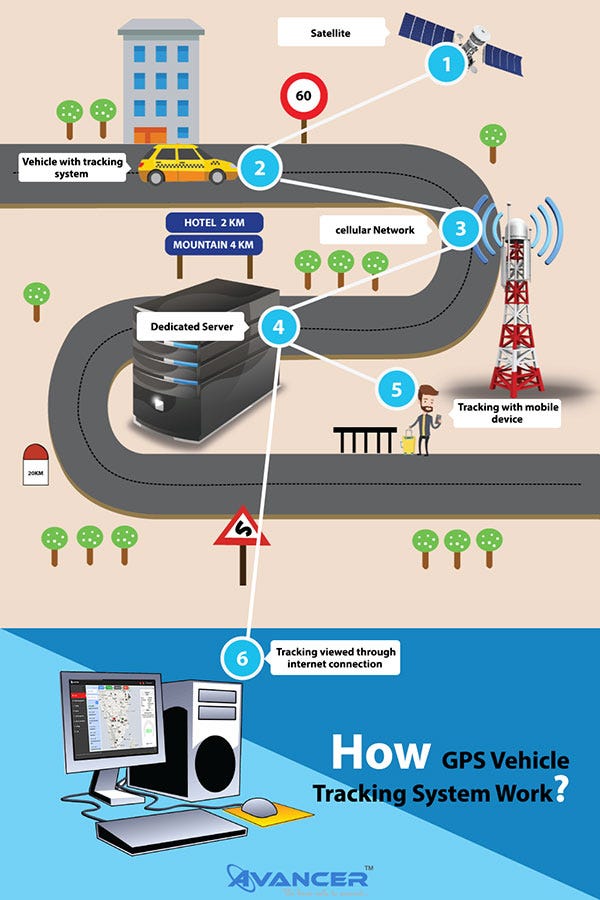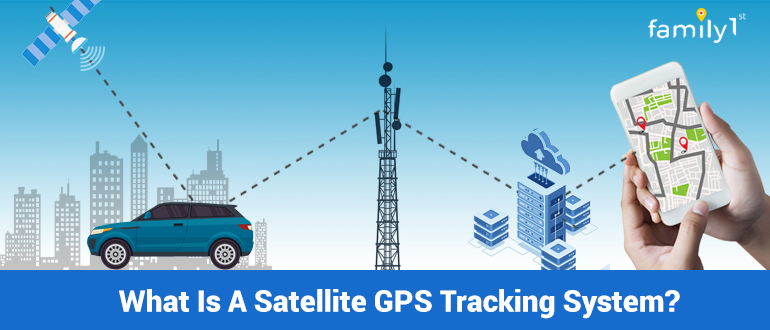Advanced GPS Tracking Equipments: Keeping Your Possessions Secure
Advanced GPS Tracking Equipments: Keeping Your Possessions Secure
Blog Article
Making The Most Of Efficiency With GPS Tracking: Techniques for Fleet Administration and Asset Monitoring
In the world of fleet administration and asset surveillance, the utilization of GPS monitoring systems has actually come to be a cornerstone for enhancing operational performance and performance. As we explore the numerous techniques and methods to maximize performance with General practitioner monitoring, a globe of possibilities opens up to redefine how companies handle their fleets and check their properties.
Implementing Real-Time Monitoring Equipments
To make the most of operational efficiency, companies can implement real-time tracking systems that offer immediate area information for their properties. By using GPS innovation, companies can gain real-time understandings into the whereabouts of their cars, tools, and various other useful sources. This level of visibility allows companies to streamline procedures, enhance performance, and enhance total efficiency.
Real-time radar provide numerous benefits for business throughout numerous sectors. With the ability to keep track of possessions continually, companies can maximize transmitting, schedule maintenance better, and reduce the risk of theft or loss. These systems enable services to react quickly to any unanticipated events or interruptions, making sure minimal downtime and maximum effectiveness.
Executing real-time radar calls for mindful planning and consideration of particular company requirements. Companies have to choose the ideal innovation service provider, personalize the system to fulfill their needs, and offer appropriate training to employees. By buying real-time tracking remedies, organizations can remain in advance of the competition, provide premium client service, and accomplish sustainable growth in today's hectic market setting.
Maximizing Route Planning and Organizing

One key method for maximizing path planning is to utilize historical information and real-time info to identify one of the most effective courses for cars. By analyzing past paths and taking into consideration variables such as website traffic patterns and distribution windows, companies can create timetables that lessen unneeded quits and hold-ups. Additionally, applying dynamic directing capabilities enables for changes to be made in real-time based upon altering conditions, making certain that motorists always take the most reliable path to their destination.
Enhancing Motorist Performance and Security
Enhancing driver performance and safety is extremely important in guaranteeing the protected and smooth operation of a fleet. By using GPS monitoring technology, fleet supervisors can check vehicle driver habits in real-time and give prompt responses to advertise risk-free driving practices. This includes tracking speed limits, rough stopping, acceleration patterns, and adherence to web traffic laws.
In addition, GPS radar can assist in identifying motorists that may need added training or support to improve their efficiency (gps tracking). By analyzing information on driving patterns and practices, fleet managers can apply targeted training programs to resolve details locations of improvement. This proactive approach not just improves total driver efficiency however additionally adds to a more secure job atmosphere for everybody involved
Along with efficiency surveillance, general practitioner radar can also boost chauffeur safety and security by giving emergency assistance features. In the occasion of a crash or malfunction, drivers can swiftly send call for help, permitting fleet managers to react without delay and send off aid when required. Overall, incorporating GPS tracking technology right into fleet management strategies is vital for maximizing motorist performance and making sure the safety of both assets and chauffeurs.

Using Geofencing for Enhanced Safety
Taking full advantage of fleet protection surpasses keeping an eye on driver performance and security; one effective approach is via the calculated usage of geofencing modern technology. Geofencing permits fleet managers to establish digital borders or geozones around certain locations, enabling them to get real-time signals when vehicles get in or leave these marked locations. By establishing geofences around risky locations such as construction sites, unapproved areas, or perhaps client areas, fleet try this web-site supervisors can enhance protection actions and minimize possible dangers.
Geofencing not just enhances safety but also Visit Website enables quick feedback times in case of unapproved lorry use or burglary. In case of a violation, signals can be sent to fleet supervisors, enabling them to take instant action to recuperate the lorry and locate. Furthermore, geofencing can assist in monitoring car motion during off-hours, making certain that automobiles are not being utilized for unapproved functions.
Incorporating GPS Data for Strategic Decision-Making
Making use of GPS data assimilation is crucial for educated tactical decision-making in fleet monitoring operations. By integrating GPS information into fleet monitoring systems, services can gain valuable understandings right into their operations, leading to much more effective courses, enhanced chauffeur actions, and better total performance. Through the assimilation of GPS data, fleet managers can track automobile places in real-time, screen fuel usage, and analyze motorist performance metrics such as speed, idling time, and severe stopping.
Furthermore, integrating GPS information enables for the optimization of routes based on website traffic problems, weather patterns, and various other outside variables, helping to decrease delivery times and functional costs. By examining historic GPS data, fleet supervisors can identify patterns, patterns, and areas for improvement, allowing them to make data-driven decisions that improve efficiency and improve operations.
Verdict
Finally, the application of general practitioner radar can substantially boost performance in Recommended Reading fleet monitoring and asset surveillance. By utilizing real-time tracking, optimizing path planning, improving vehicle driver efficiency, utilizing geofencing for security, and integrating GPS information for calculated decision-making, organizations can enhance operations and achieve price financial savings (gps tracking). These techniques allow companies to simplify processes, boost efficiency, and inevitably optimize the overall efficiency of their operations
In the world of fleet management and asset surveillance, the utilization of General practitioner tracking systems has actually become a keystone for enhancing functional effectiveness and efficiency. As we explore the numerous methods and techniques to make the most of performance with General practitioner monitoring, a world of opportunities opens up to redefine just how organizations handle their fleets and check their assets.
By making use of General practitioner monitoring innovation, fleet managers can monitor driver actions in real-time and offer instant comments to promote risk-free driving practices. Through the assimilation of GPS information, fleet managers can track car places in real-time, screen gas intake, and examine driver performance metrics such as rate, idling time, and harsh stopping.
In conclusion, the implementation of GPS tracking systems can substantially improve efficiency in fleet monitoring and asset tracking.
Report this page